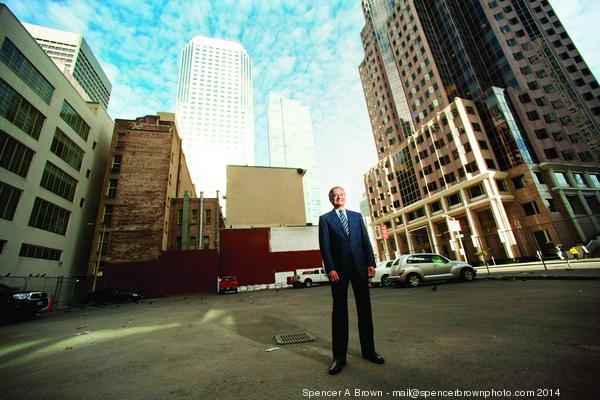News & Awards.
TMG Partners has won awards for many projects
including honors for “Best Mixed Use,”
“Best Office,” and “Best Historic Rehabilitation”.

It's boom time in the Bay Area real estate market, but there are still plenty of challenges for the city's most active developers. Commercial and residential properties may lease up quickly and sell for huge profits, but there are also sky-high construction costs, a contentious Transbay tax deal and the uncertainty about when this cycle will end.
TMG Partners President Michael Covarrubias is in the middle of it all. The firm has proposed a 1 million-square-foot mixed-use project in the Transbay district. It also plans to build 146 units in downtown Fremont and is sitting on an approved site in East Palo Alto for a 208,000-square-foot office building that it's developing with the Sobrato Organization. TMG is leading a rebuild at Pier 38 for the Port of San Francisco as well.
We talked to Covarrubias about what's in the works, where he sees opportunity in the Bay Area and what kind of politics — and tax deals — are driving the real estate engine.
You've had a string of successes this cycle. Where are you looking next? Today we're looking at more outward projects — rehab opportunities in the city, but they may not be for this cycle. It may be a great asset that we can hold onto for awhile and then when this cycle ends and when things are cheaper and we can buy distressed. That's what we did well in 2008, 2009, 2010.
Our strategy is to do opportunistic development where we add value to the project with no care for what product type it is. The challenge today is prices being high. Preparing for the next down-cycle is difficult because you have to answer the question, "When is it going to end?" and no one can answer (that). We're looking at things that cost more than we'd like. We're talking to capital partners about having money for the next cycle so we can take advantage of things like we did last time.
What parts of the region are ripe? We look at all the markets in the Bay Area. We are trying to stay ahead of the curve and use the old Wayne Gretzky line of going where the puck's going to be. In today's market, we are looking at things that are difficult to do. Prices have run up so dramatically. The costs to build have gone up so dramatically. It's hard to find new opportunities in some of the basic stuff we do. We're looking at other rehab opportunities in the South Bay — residential, mostly for rent. That's extremely hard and politics make it more challenging depending on the area. It can be as difficult in Emeryville and Berkeley as Palo Alto.
Have you eyed Oakland at all? We haven't done a deal over there. We made a run at two or three buildings, couldn't get it to work economically or physically because we didn't see the market going up as fast as it may. You have to worry about exit price. The history has been it's been fairly flat over there. For us, we need prices to go up and down and buy low, sell high. Those are the fundamentals, and we want to add value.
TMG has argued that the city unfairly ratcheted up taxes on Transbay properties at the last minute. Other firms like Boston Properties and Hines have reportedly threatened to sue. Will a deal get done? There's hope for a resolution because the conclusion is bad if it stays where it is. Everyone has a slightly different financial position. Some have a development agreement, some have bought the land already, some have not. Some are under construction, some are not at all. We do different financial positions vis a vis the (so-called) Mello Roos (infrastructure tax district). That's why my head hurts thinking about getting a solution that fits all the players. But the math under the current plan is really challenging. I'm reminded of the movie "Argo" when they say, "Is this the best bad idea we have?" We're going to find the best bad idea we can find. That may depend on other people doing stuff that is litigious.
Based on history, I don't have a reason to say it'll get fixed, but there are some seriously smart people on both sides.
What does this skirmish say for the future of development in the city? I don't think the Mello Roos has anything to do with development in the city. It's a financing mechanism for a transit civic use. Then there's Prop. B. It started with 8 Washington and went to the Embarcadero height limits and there's the skirmish at the Flower Mart. The pendulum swings (against development) when there's lots of cranes in the air and incomes become disparate. Things get more expensive, vacancy is below 5 percent, rents have gone up, housing prices have gone up. That's when the pendulum swings. Now development is a bad word even though jobs is a good word. The focus is on housing, but it becomes this anti-everything sense that you get from the far left. Some things should be preserved and none in the development community would argue that. Some things will be fought over if they become symbols of development. It's a battle that happens every cycle.


